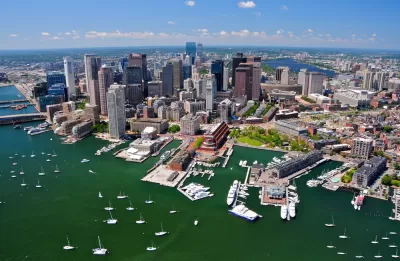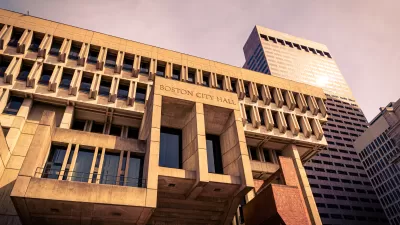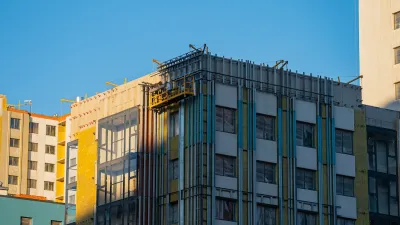As part of the city’s broader climate goals, Mayor Michelle Wu wants to require all new buildings to eliminate the use of fossil fuels.

After Massachusetts Governor Charlie Baker signed a climate bill last week, Boston Mayor Michelle Wu plans to introduce legislation that would eventually eliminate the use of fossil fuels in new construction in the city, where buildings make up roughly 70 percent of the city’s emissions.
As Maria Rachal reports in Smart Cities Dive, “The state law establishes a pilot program that will allow 10 municipalities to create local policies restricting the use of fossil fuels in new construction projects.” At present, Boston would be the 11th city to file a petition, but could be included in the program if other communities fail to meet the program’s requirements. “Those communities include Brookline, a town in the Boston suburbs that voted in 2019 to become the first East Coast town to ban fossil fuel hookups in new buildings but ultimately was not allowed by the state to do so.”
According to the source article, “Boston, a member of the national Building Performance Standards Coalition, last fall adopted a building performance standard that requires all buildings 20,000 square feet or larger to meet certain emissions targets by 2025, and have zero carbon emissions by 2050.” The city will engage in a public input process before determining the final parameters and timelines for making buildings fossil fuel-free.
FULL STORY: Boston aims to eliminate fossil fuels in new buildings

Maui's Vacation Rental Debate Turns Ugly
Verbal attacks, misinformation campaigns and fistfights plague a high-stakes debate to convert thousands of vacation rentals into long-term housing.

Planetizen Federal Action Tracker
A weekly monitor of how Trump’s orders and actions are impacting planners and planning in America.

In Urban Planning, AI Prompting Could be the New Design Thinking
Creativity has long been key to great urban design. What if we see AI as our new creative partner?

How Trump's HUD Budget Proposal Would Harm Homelessness Response
Experts say the change to the HUD budget would make it more difficult to identify people who are homeless and connect them with services, and to prevent homelessness.

The Vast Potential of the Right-of-Way
One writer argues that the space between two building faces is the most important element of the built environment.

Florida Seniors Face Rising Homelessness Risk
High housing costs are pushing more seniors, many of them on a fixed income, into homelessness.
Urban Design for Planners 1: Software Tools
This six-course series explores essential urban design concepts using open source software and equips planners with the tools they need to participate fully in the urban design process.
Planning for Universal Design
Learn the tools for implementing Universal Design in planning regulations.
Gallatin County Department of Planning & Community Development
Heyer Gruel & Associates PA
JM Goldson LLC
City of Camden Redevelopment Agency
City of Astoria
Transportation Research & Education Center (TREC) at Portland State University
Jefferson Parish Government
Camden Redevelopment Agency
City of Claremont





























